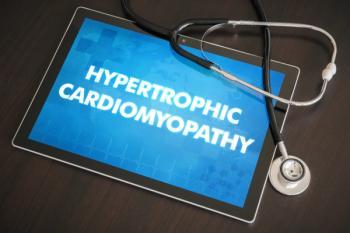
Acetaminophen, NSAIDs elevate hypertension risk in women
Acetaminophen at doses of more than 500 mg/d and nonsteroidal anti-inflammatory drugs (NSAIDs) at doses of more than 400 mg/d increase the risk of incident hypertension in younger and older women, according to cohort studies published in Hypertension.
Acetaminophen at doses of more than 500 mg/d and nonsteroidal anti-inflammatory drugs (NSAIDs) at doses of more than 400 mg/d increase the risk of incident hypertension in younger and older women, according to cohort studies published in Hypertension.
Investigators also concluded that, for older women, the risk more than doubles when the daily dose of NSAID, particularly ibuprofen, exceeds 800 mg.
Meanwhile, a third drug-aspirin-is not significantly associated with hypertension in older women and is marginally associated with increased risk among younger women, the investigators determined.
Among the older women who took acetaminophen, those who exceeded daily doses of 500 mg had a 93% increased risk of developing hypertension compared with acetaminophen nonusers (RR, 1.93; 95% CI, 1.30–2.88; P<.001). The younger women who took similar doses had a 2-fold higher risk of developing hypertension compared with those who did not take acetaminophen (RR, 1.99; 95% CI, 1.39–2.85; P<.001).
Among the NSAID users, the older women who took greater than 400 mg daily had a 78% greater risk of hypertension (RR, 1.78; 95% CI, 1.21–2.61; P=.01). The younger women who took similar doses had a 60% increased risk of hypertension (RR, 1.60; 95% CI, 1.10–2.32; P=.04).
The investigators went a step further with NSAIDs and studied the effects of doses greater than 800 mg. The older women experienced a 2.2-fold higher risk of hypertension compared with nonusers (RR, 2.17; 95% CI, 1.28– 3.42). Meanwhile, the risk among younger women differed very little (RR, 1.61, 95% CI, 1.06–2.44).
"These results confirm and expand on our previous reports that frequency of acetaminophen and NSAID use increases the risk for incident hypertension in women," the investigators concluded. "Because acetaminophen and NSAIDs are commonly used, they may contribute to the high prevalence of hypertension in the United States."
The investigators repeated their analyses to study women without headache. They intended to address the possibility that the association between analgesic use and hypertension may have been mediated by headache. They found that older women without headache who took more than 500 mg of acetaminophen daily had a 2.4-fold increased risk of hypertension compared with a 1.75-fold increased risk with use of more than 400 mg of NSAIDs daily. Meanwhile, younger women without headache who took more than 500 mg of acetaminophen daily had a 4.7-fold increased risk compared with a 3.7-fold increased risk with use of greater than 400 mg of NSAID daily.
Because women who take analgesics might be more likely to visit their clinicians, the investigators analyzed subsets of older and younger women who reported 1 or fewer examinations during the period of follow-up, in which blood pressure was likely to be measured. The risk of hypertension in older women (n=1,804 with 204 cases) remained significantly elevated for acetaminophen (RR, 1.96; 95% CI, 1.30–2.96) and NSAIDs (RR, 1.66; 95% CI, 1.12–2.46). In the younger women (n=3,030; 289 cases), the results for acetaminophen (RR, 1.96; 95% CI, 1.36–2.85) and NSAIDs (RR, 1.58; 95% CI, 1.09–2.30) were not materially different from the entire sample.
Aspirin dose was not associated with hypertension in older women, although it was marginally associated with increased risk in the younger group (P=.06).
The investigators noted that the association between acetaminophens and hypertension might in part be mediated through a potential effect on endothelial function.
SOURCE Forman JP, Stampfer MJ, Curhan GC. Non-narcotic analgesic dose and risk of incident hypertension in U.S. women. Hypertension. 2005;46:500–507.
Newsletter
Get the latest industry news, event updates, and more from Managed healthcare Executive.

























